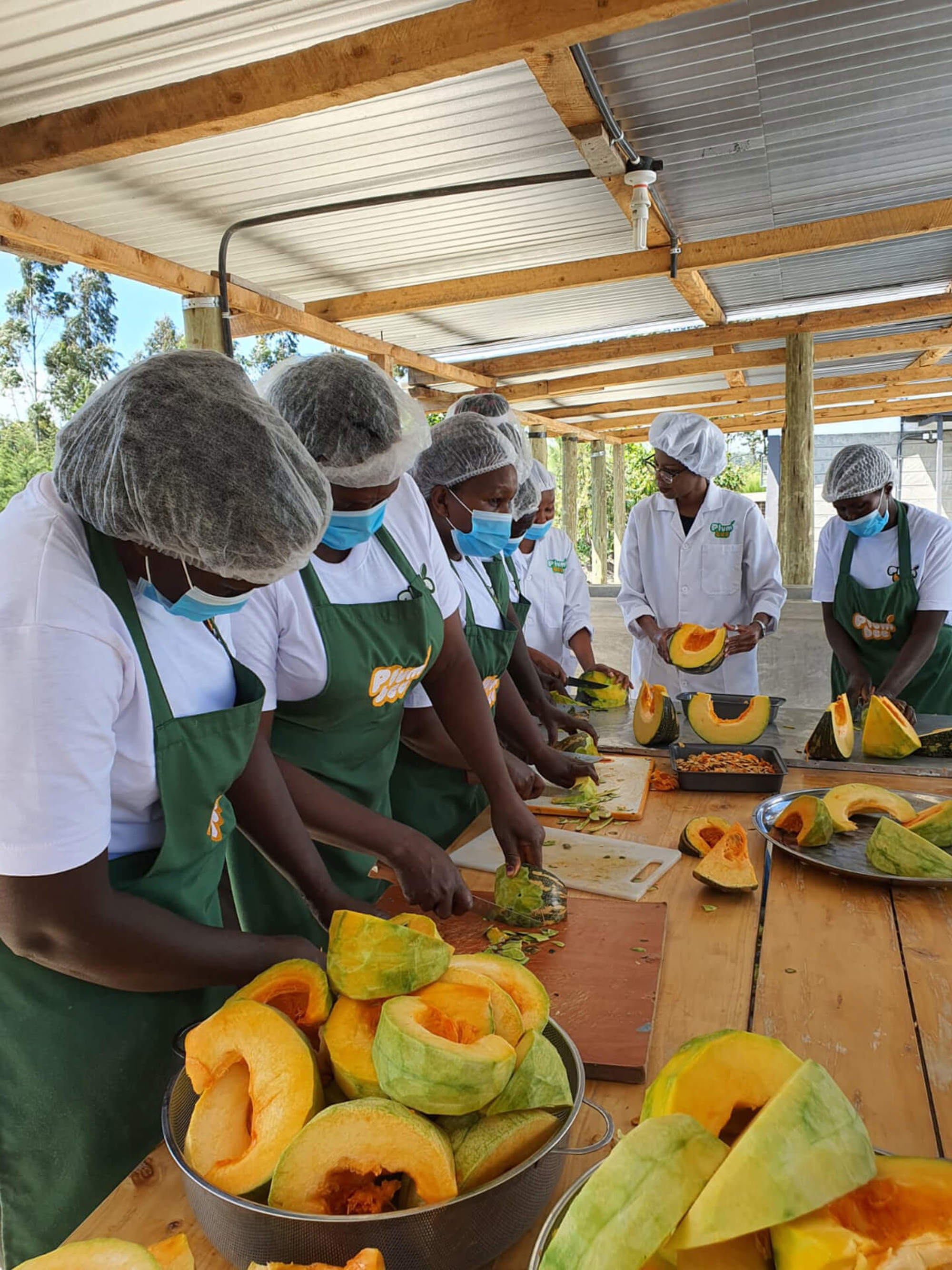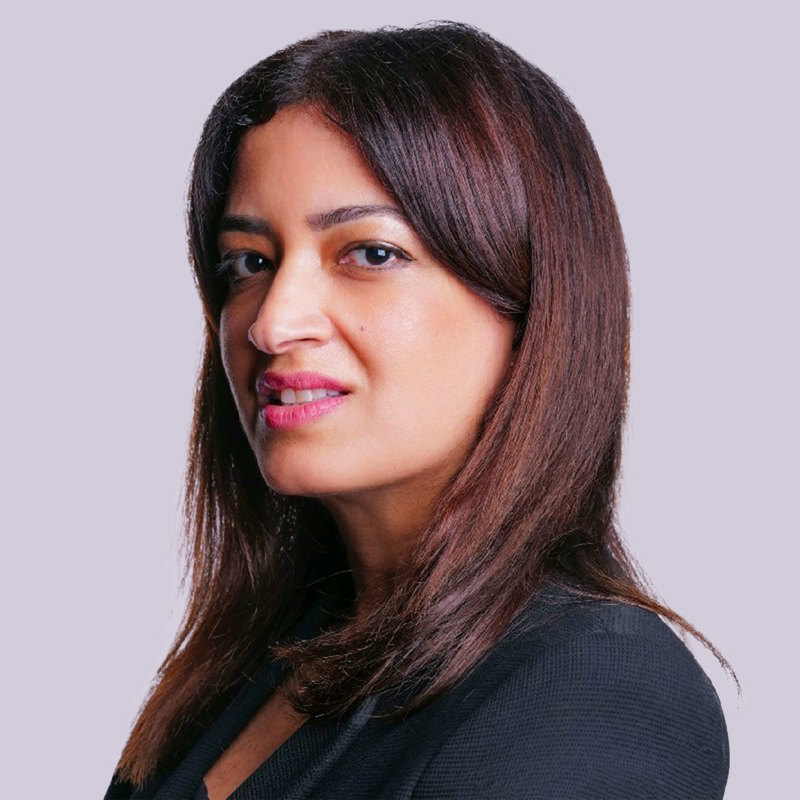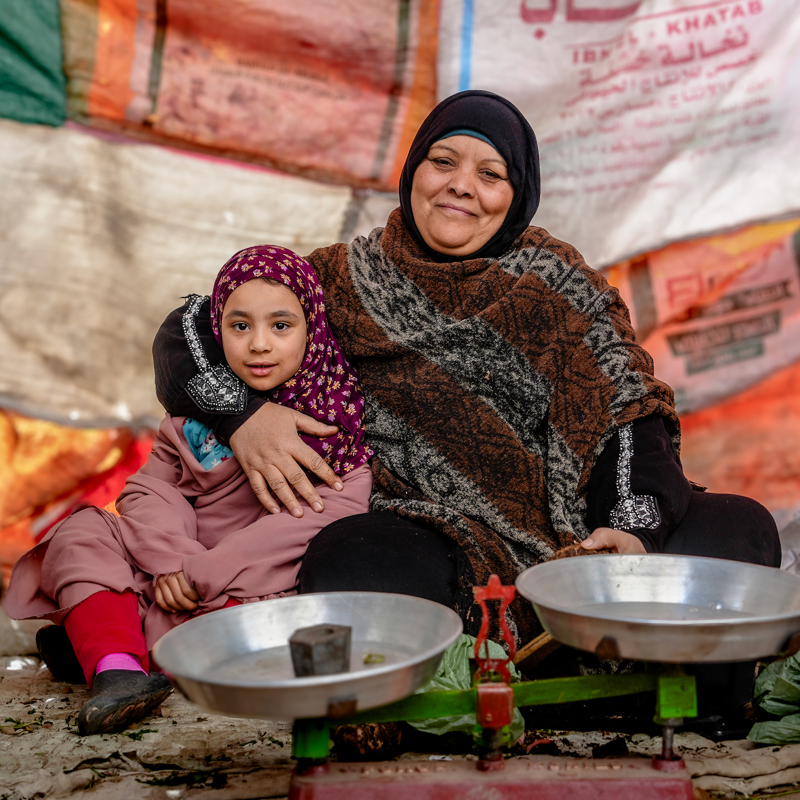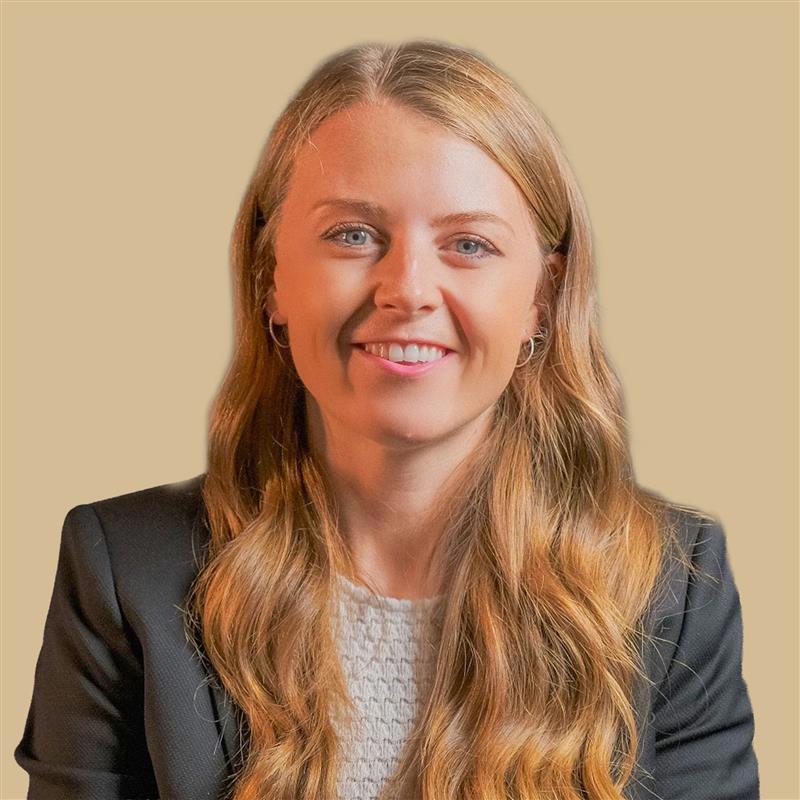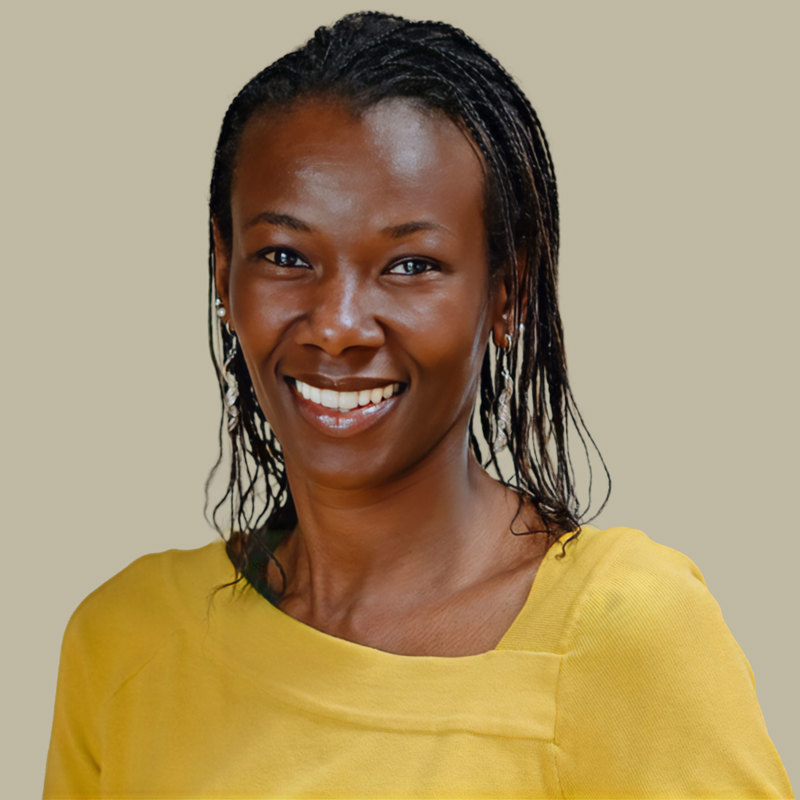 Tamara Ghandour is an entrepreneur, humanitarian and social investor dedicated to women’s empowerment. After a career in luxury retail in London, she shifted focus to the impact and development sector, working with SAWA for Development & Aid supporting Syrian refugees, and later with the Lebanese social enterprise FabricAid. She then moved to the UAE to advise a family office on Impact and ESG initiatives. Tamara played an instrumental role in founding and leading the HerMeNow Accelerator, empowering women-led social enterprises across the MENA region, before launching Rama Impact in 2024 - an impact-first fund supporting early-stage, women-led social enterprises driving climate resilience and economic empowerment in underserved communities in Middle East & Africa.
Tamara Ghandour is an entrepreneur, humanitarian and social investor dedicated to women’s empowerment. After a career in luxury retail in London, she shifted focus to the impact and development sector, working with SAWA for Development & Aid supporting Syrian refugees, and later with the Lebanese social enterprise FabricAid. She then moved to the UAE to advise a family office on Impact and ESG initiatives. Tamara played an instrumental role in founding and leading the HerMeNow Accelerator, empowering women-led social enterprises across the MENA region, before launching Rama Impact in 2024 - an impact-first fund supporting early-stage, women-led social enterprises driving climate resilience and economic empowerment in underserved communities in Middle East & Africa.
Growing up in post-war Beirut, I saw first-hand how women often lacked financial independence and a voice in decision-making, despite Lebanon’s progressive image. That experience shaped my lifelong commitment to empowering women.
While studying at the American University of Beirut, I launched a small social enterprise that employed women tailors from underserved communities and sourced fabric from struggling local shops. That initiative sparked a deeper interest, leading me to pursue a master’s in fashion entrepreneurship in London. I then worked in luxury retail with Ferragamo and Harrods, serving high-profile clients like Penelope Cruz and David Beckham.
Although that world was exciting, I felt unfulfilled - I was craving creativity and purpose. A volunteering trip to Latin America, caring for children and the elderly, became a turning point. I returned home committed to a more meaningful path.
I reached out to an old friend, Rouba Mhaissen, founder and CEO of the NGO SAWA for Development and Aid in Lebanon. I was considering pursuing another degree in the humanitarian or development field, but she encouraged me instead to join her team and gain hands-on experience working directly on the ground.
In 2016, during the height of the Syrian refugee crisis, I joined SAWA for Development & Aid, working across refugee camps in Lebanon. My role was deeply hands-on and wide-ranging - I was involved in everything from fundraising and programme design to marketing and financial structuring.
It was an intense and immersive experience that exposed me to the stark realities of the humanitarian sector. I witnessed firsthand how grassroots organisations were doing the bulk of the work, while large international NGOs often moved slowly and consumed a disproportionate share of resources.
Many donor-led programmes were short-term and often driven by political agendas, making them misaligned with the actual needs on the ground. We need to teach people how to fish - not keep them dependent on aid indefinitely.
"Many donor-led programmes are short-term and often driven by political agendas, making them misaligned with the actual needs on the ground."

Photo by Jonathan Ramalho on Unsplash.
This sense of disillusionment led me to social entrepreneurship - supporting people solving their own problems in sustainable, scalable ways, and in 2017, I joined FabricAid, a Lebanese social enterprise that collects and recycles secondhand clothing - creating jobs, providing affordable clothing for underserved communities and significantly reducing landfill waste.
Then, four years later, I moved to the UAE to support a family office build an impact and ESG division focused on women's empowerment. We funded scholarships, supported women in male-dominated fields like aviation and built an accelerator for early-stage women-led social enterprises in Middle East & Africa.
It was then I began to see the "missing middle” - social enterprises with solid models and $20–25K in revenue, but no access to funding. Too advanced for grants, not yet investable for VCs. Banks typically won’t lend to enterprises like these - they’re seen as too risky, often lack collateral, and face prohibitively high interest rates.
As a result, many women are left vulnerable to predatory lenders such as loan sharks charging 50% interest. We’re working to fill that gap with a more supportive and equitable alternative.
According to the World Economic Forum, 9 out of 10 social enterprises fold between years four and six. In the Middle East & Africa, the funding gap is US$270 billion.
"Let’s move beyond charity and toward catalytic, patient finance that empowers women to lead change - on their terms."
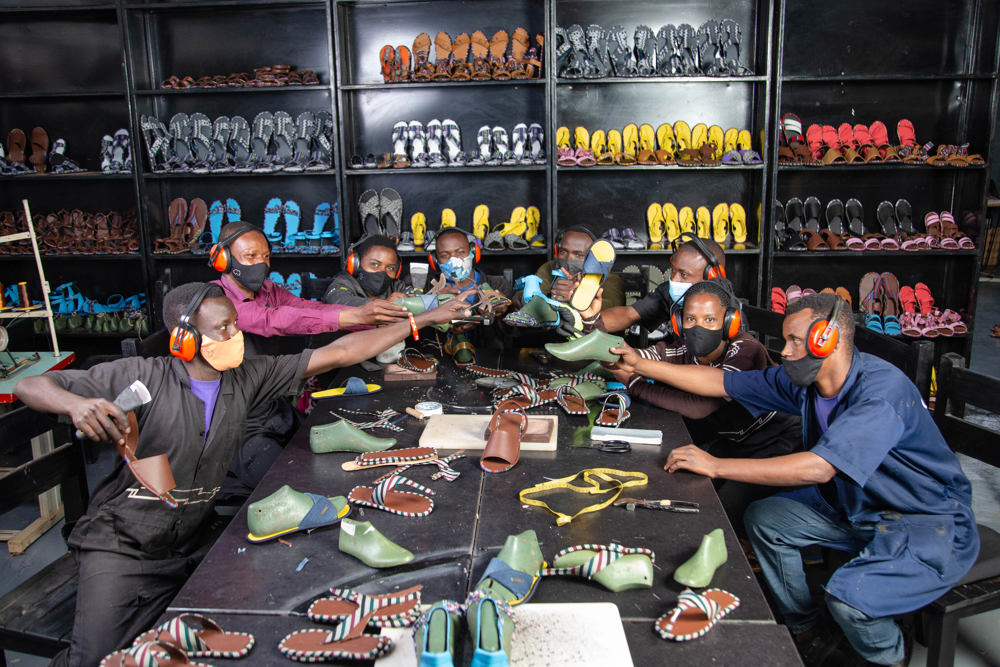
UZURI K&Y Ltd, co-founded by Kevine Kagirimpundu in Rwanda, repurposes recycled materials, primarily discarded tyres, into quality and stylish shoes, while generating dignified employment opportunities for youth and women through hands-on training in sustainable manufacturing.
That’s why I founded Rama Impact - to plug this gap with catalytic, patient capital and strategic support. We are an impact-first fund supporting early-stage, women-led social enterprises, operating in underserved communities with a focus on climate resilience and economic empowerment.
The types of businesses we support include waste management, agribusiness and food security, sustainable and affordable housing, sustainable and ethical fashion, and circular economy businesses.
Take Anne from Uganda, who lost her father at a young age and spent much of her childhood moving from one rental home to another with her mother and brother. Determined to make a better future, she studied engineering and saved up enough money to buy a plot of land, on which she’s built sustainable homes that she rents out to low-income women-headed households. Smart Havens Africa’s rent-to-own scheme means many more women and their daughters have a chance to become homeowners and break their own poverty cycles.
Or there is the example of Sama Irene from Cameroon, who has developed an affordable soy-based yogurt and milk blend rich in protein and calcium made from locally grown inputs. Nutrition is so key for early development and with a loan of just US$10,000, Reine Food Enterprise is able to feed an additional one million children. More than that, it’s creating jobs and creating a new market for smallholder farmers who hadn’t been able to export their crops. So, the impact is felt on many levels.
At Rama Impact, we offer two tracks: a loan programme and a pre-loan programme.
For the loan programme, we offer interest and collateral free loans of between US$5,000 and US$40,000 repayable over 12 to 18 months. The women choose their repayment terms based on their business models and cashflow.
This is enabling finance, or patient capital, and they can use the money how they see fit, for example, to purchase machinery and raw materials, increase headcount, and invest in marketing. Our goal is to help these women become investor-ready in two to three loan cycles.
We also offer non-financial support: mentorship, financial literacy, digital marketing, strategic planning, and wellbeing coaching - because many of these women are juggling businesses, households and immense pressure.
Our pre-loan programme emerged organically when we saw how many applicants had strong potential but didn’t meet eligibility criteria - mainly due to financials. We support them for 12 months to get them loan-ready.
Since launch, we have backed 11 women-owned social enterprises across Kenya, Uganda, Cameroon, Rwanda, Ghana, and Côte d’Ivoire, deploying $105,000 in debt so far.
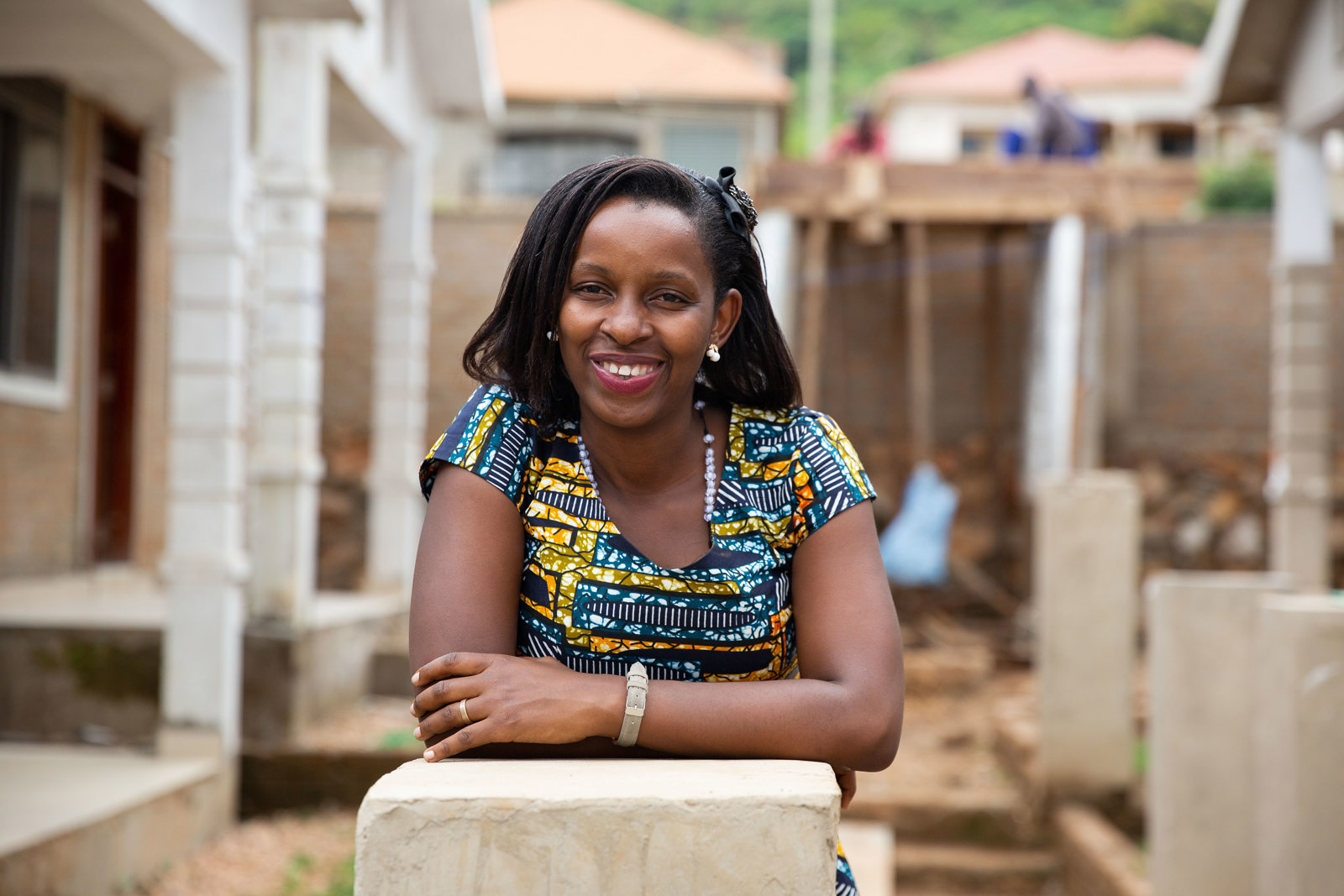
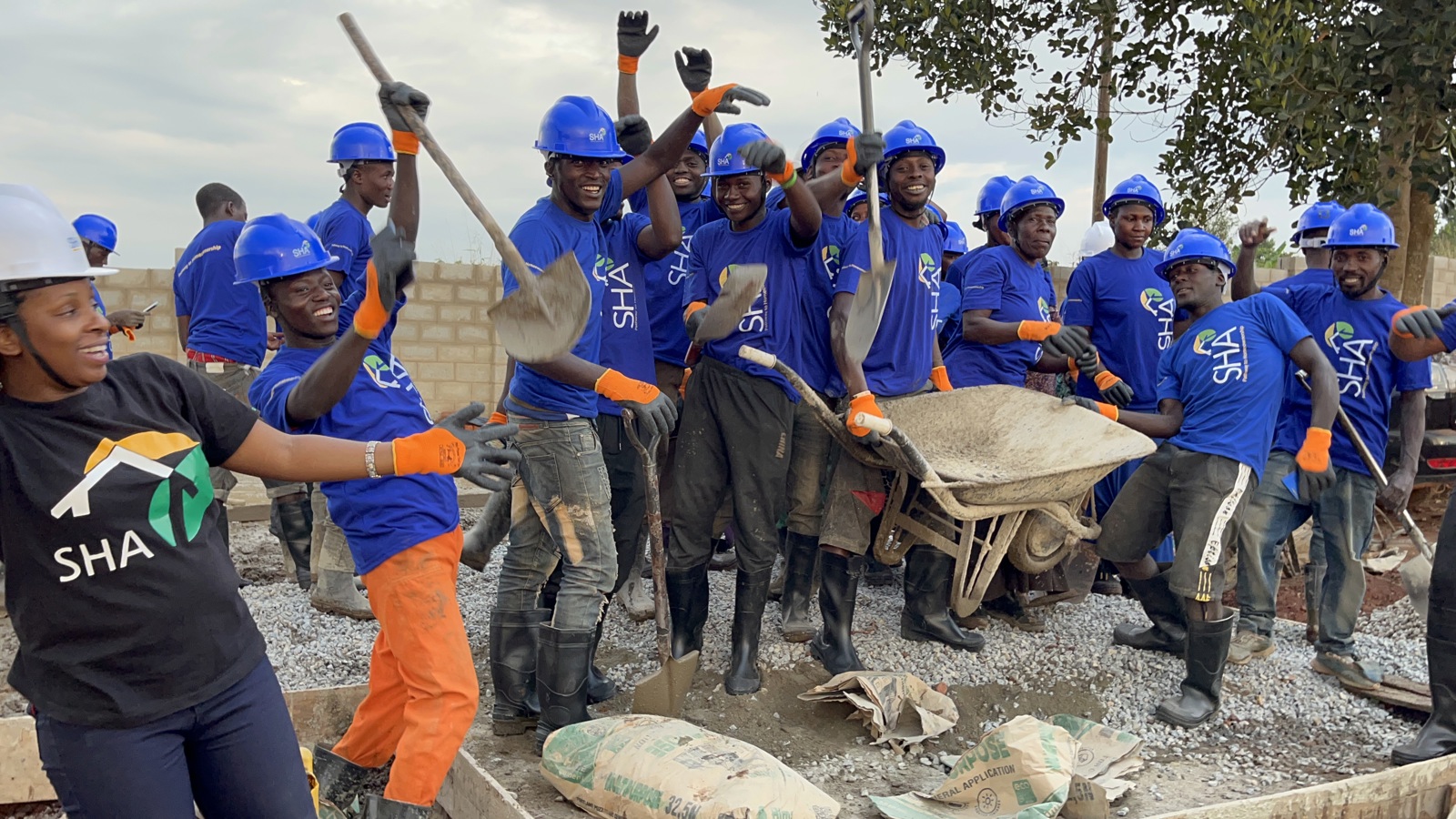
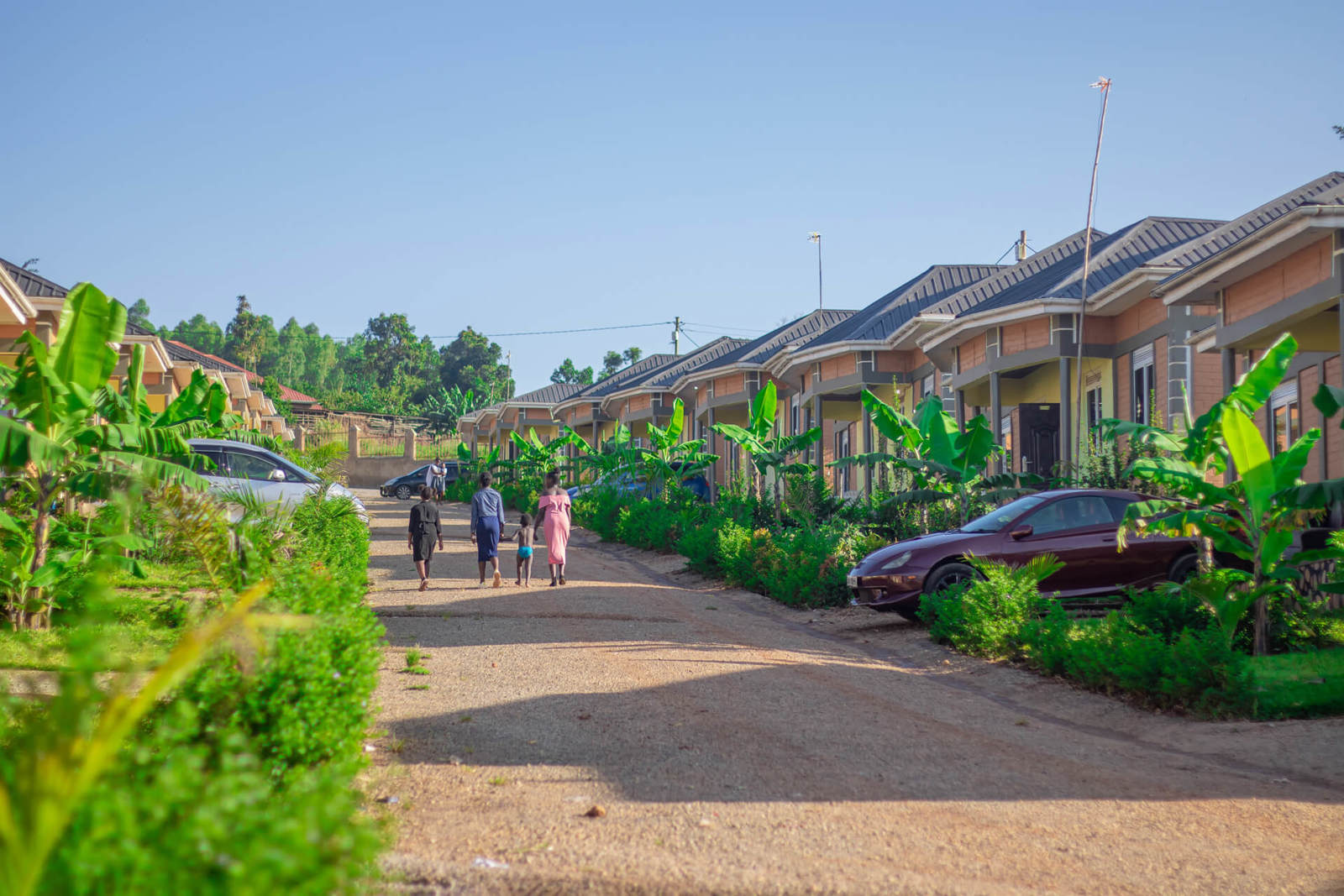
Anne K Rweyora (pictured left) founded Smart Havens Africa to give women in Uganda the chance to become homeowners and break poverty cycles.
When I founded Rama Impact, my intention was to also support social enterprises in the Middle East and North Africa - a region I call home and where I have spent most of my career. However, we haven’t yet added any from this region to our portfolio.
This is due to a combination of factors: cultural discomfort with debt, the challenges of dollar-denominated lending in unstable currency markets like Palestine, Lebanon, and Egypt, and an ecosystem that’s not yet mature enough to absorb loan sizes of $20–40K.
Despite these barriers, the need for investment is critical, and I remain hopeful that the landscape will evolve to make this kind of catalytic capital more accessible.
We are still officially in the pilot phase and we are measuring carefully KPIs around revenues and repayment, as well as environmental, climate and social impact. For this phase, we are raising funds through grants as we continue to test and refine our model.
In Phase two, our goal is to transition to a blended finance approach. Under this structure, grants would cover operational costs and non-financial support, while the loan capital would be provided by concessional impact investors - those who are willing to accept the return of their capital (debt) without interest, but with a strong return on impact.
Our focus on climate resilience and supporting vulnerable communities is deeply aligned with Sharia principles. We offer interest-free financing and deliberately avoid investing in businesses that conflict with Sharia-compliant values.
There is tremendous untapped potential in the Islamic giving economy - Zakat, Sadaqah and Waqf are significant financial instruments in the region, with Zakat contributions alone estimated at approximately $600 billion annually.
We are exploring ways to channel a small portion of this funding into catalytic capital that creates sustainable, long-term impact - moving beyond short-term charitable giving, like food or clothing donations during Ramadan, to investments that empower underserved communities and build lasting resilience.
The idea is that once a loan has been repaid, the money is recycled and lent out to another social enterprise. So these grants are multi-use and participate in building long term solutions and sustainability in underserved communities.
"If we want to build resilient communities and inclusive economies, we must invest in the people solving problems from within."
Our current funders are a mix of family offices and private donors. It’s been a tough journey doing the fundraising. I have not managed to get donors in this region, yet. Interestingly, a lot of Gulf donors I spoke to said they would be happy to invest if there were high yields, around 10-15 percent, otherwise, they’d just give the money as charity. They can’t seem to visualize the middle ground I am working in.
I would say NextGens are more open to impact investing and are very motivated to see their money having value and that projects follow KPIs, but overall, in the Middle East, this type of financing is still quite nascent.
You can’t force the pace of a market, but you can help it to change and that’s what I hope Rama Impact will do.
If we want to build resilient communities and inclusive economies, we must invest in the people solving problems from within. Social entrepreneurs - especially women - are creating jobs, protecting the environment, and lifting others out of poverty; setting the example to the generations to come. But they are being squeezed by high interest and lack of access to capital.
We don’t need more aid. We need more agency. We need to fund the future. Whether you're a donor, an investor, or a policymaker, I invite you to rethink how you deploy your capital.
Let’s move beyond charity and toward catalytic, patient finance that empowers women to lead change - on their terms.
